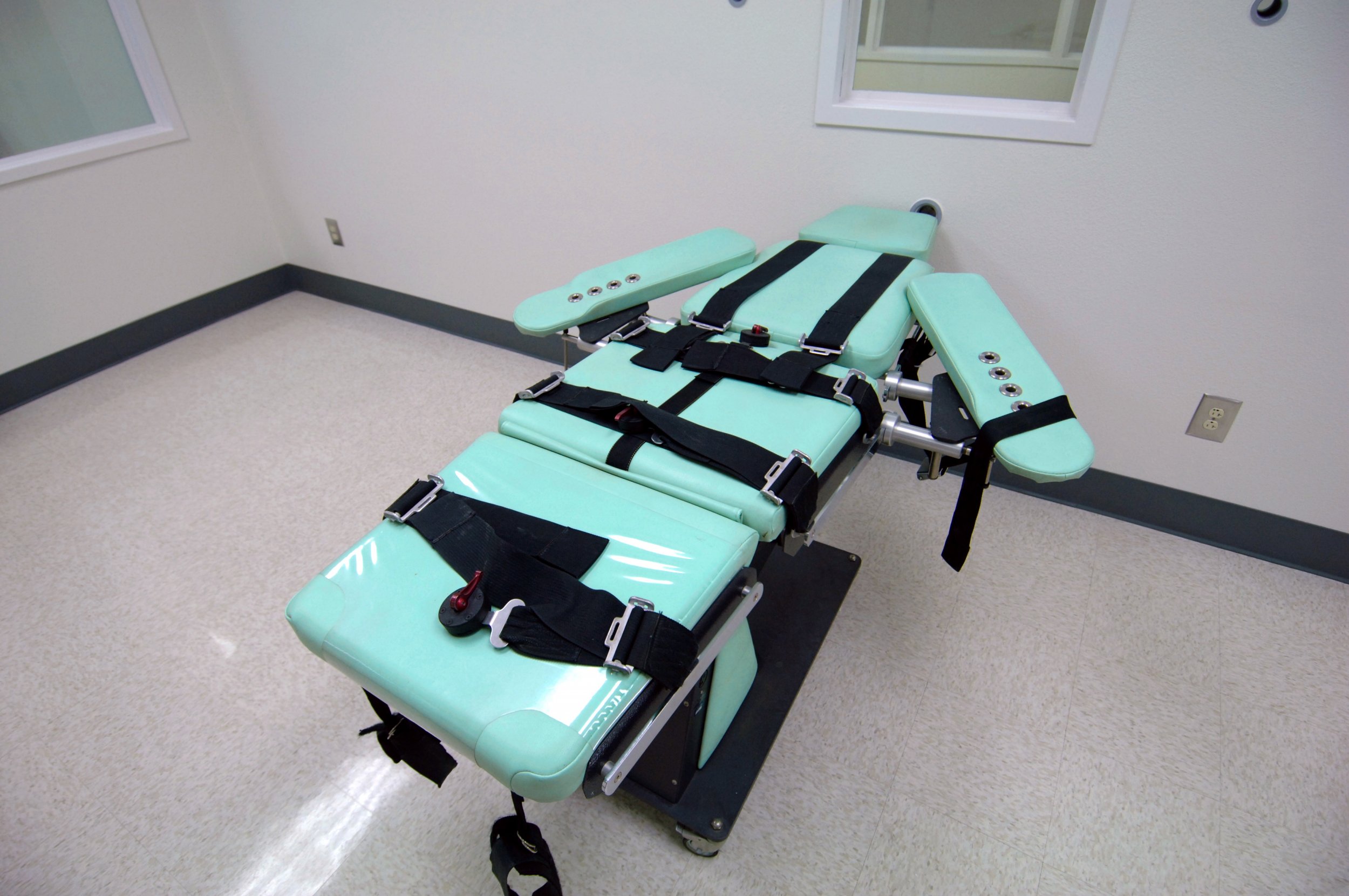
How many are sentenced to death in the United States for crimes they did not commit?
A new study believes the figure is 1 in every 25—or 4.1 percent.
The study, released Monday in the Proceedings of the National Academy of Sciences, "tells you that a surprising number of innocent people are sentenced to death," Samuel R. Gross, the lead author, said in an interview with Newsweek. "It tells you that a lot of them haven't been exonerated. Some of them no doubt have been executed."
Since 1973, 144 people on death row have been exonerated. As a percentage of all death sentences, that's just 1.6 percent. But if the innocence rate is 4.1 percent, more than twice the rate of exoneration, the study suggests what most people assumed but dreaded: An untold number of innocent people have been executed. Further, the majority of those wrongfully sentenced to death are likely to languish in prison and never be freed.
"I'm a little surprised it's this high," said Richard Dieter, executive director of the Death Penalty Information Center, a nonprofit that works to educate the public about capital punishment. "I did not think the number would point to more than twice as high" as the number of cases that end in exonerations.
In all, the study, "Rate of False Conviction of Criminal Defendants Who Are Sentenced to Death," shows that more than half of the innocent people sentenced to death in the past 41 years are unaccounted for.
"Here's something which everybody said: 'You cannot do this, you can't find this out,'" said Gross, a law professor at the University of Michigan Law School. After all, a wrongful conviction is by definition an unknown error. Still, Gross has been studying wrongful criminal convictions for years, often alongside the study's co-author, Barbara O'Brien of Michigan State University College of Law. "We actually have a scientific estimate of the rate of innocence among people sentenced to death. That's exciting."
The study seeks to put to rest the conventional wisdom that wrongful criminal convictions are extremely rare. "[T]here is no shortage of lawyers and judges who assert confidently that the number of wrongful convictions is negligible," the authors write. Supreme Court Justice Antonin Scalia, for example, quoted a New York Times op-ed in a 2006 concurring opinion to claim that felony convictions have an "error rate .027 percent—or, to put it another way, a success rate of 99.973 percent."
Gross said his study is "fundamentally inconsistent with statements like" Scalia's, which he called "a silly claim."
To approximate a number that has long been considered unknowable, the authors studied the subset of prisoners who, if wrongfully convicted, are most likely to be exonerated: those facing the threat of execution. Because the justice system goes to lengths not to execute innocent people, the cases of prisoners on death row receive far more scrutiny and go through many more appeals processes, raising the likelihood that any flaws in their convictions are found.
"The result is an exoneration rate that is far, far higher than for other [types of] cases, hundreds of times higher than for felons in general," Gross explained. "That means that it might be possible to use that very high exoneration rate as a good measure of the underlying rate of innocence, because it might come close to discovering all the cases that are there."
The study required some inventive math, however, because the highest predictor of being exonerated is not merely being sentenced to death but being currently under the threat of death. Many people sentenced to death ultimately have their sentences reduced to life in prison, at which point the criminal justice system stops focusing on their cases and their chances of being exonerated drops dramatically.
In order to find the innocence rate, the study had to determine the probability that someone sentenced to death would be exonerated if he or she remained under the threat of execution indefinitely. So Gross and O'Brien teamed up with biostatistician Chen Hu from the University of Pennsylvania School of Medicine and applied "survival analysis," a technique generally used in medicine, to find the likelihood that someone on death row is innocent.
Gross explained their analysis by likening it to the mathematical process of determining the survival rate among a population with malaria. Because some people with malaria will receive treatment at various times, reducing the likelihood of succumbing to the disease—in the same way that being taken off death row reduces the likelihood of being exonerated—epidemiologists must be able to determine the death rate without counting the effects of the treatment on some people. When survival analysis is used to study the death penalty, the rate of those who are exonerated and survive death row is analogous to the rate of those who will die in the hypothetical malaria study.
The authors believe that 4.1 percent is the lower bound of the wrongful conviction rate for death sentences, because even the special attention given to people on death row will not catch every wrongful conviction. Many of these people have had their sentences reduced, meaning they are "not executed but also not found," as Dieter put it.
"It's a warning, an objective look at how we have been successful in finding some of these cases, but probably we're missing a lot," Dieter said of the study. "It raises the ultimate question of: Do we keep doing this?"
Uncommon Knowledge
Newsweek is committed to challenging conventional wisdom and finding connections in the search for common ground.
Newsweek is committed to challenging conventional wisdom and finding connections in the search for common ground.
About the writer
Pema Levy is a Washington Correspondent for Newsweek, covering Congress, elections and dabbling in court battles and other political miscellany. ... Read more
To read how Newsweek uses AI as a newsroom tool, Click here.








